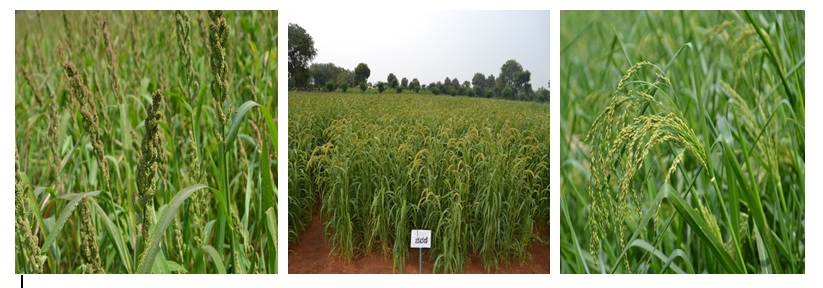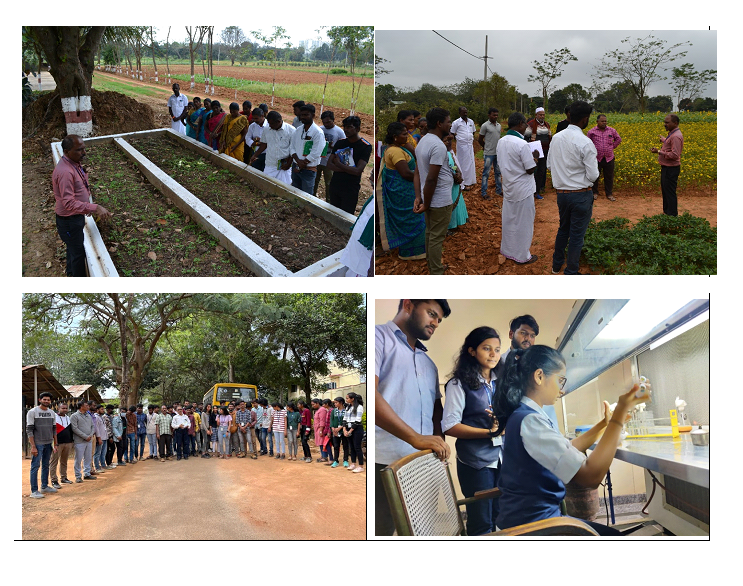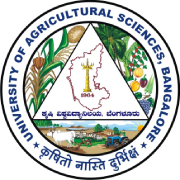The University of Agricultural Sciences, GKVK, Bangalore has given more importance to organic farming with the establishment of Research Institute on Organic Farming (RIOF) in 2008 at GKVK, UAS, Bengaluru of the following objectives.
Objectives
- To validate existing organic farming practices and local wisdom.
- To develop various production technologies of producing liquid organic manures, FYM, compost, enriched compost etc., for efficient recycling of organic wastes.
- To identify suitable Integrated Farrming Systems (IFS) for different agro-climatic zonces and promoting them.
- To develop package of practices for different organic crops.
- To develop and promote suitable bio-fertilizers and bio-pesticides for organic farming.
- To promote capacity building to organic farming stakeholders.
RIOF Activities & Services
Research institute on Organic farming has been actively serving farming community & organic growers in promotion of organic farming. The centre is involved in Research, Demonstration and Extension in organic farming.
- Technical Guidance & training on organic farming to farmers, NGO’s, Organic growers, line department officials.
- Mass production of Bio-fertilizers and Bio-control agents and supply to farming community and organic growers.
- Testing of Organic inputs (viz., organic manures, bio-fertilizers, liquid organic manures) for private and government agencies.
Steps taken to fulfill the objectives
- UAS, Bangalore is engaging 09 research stations in two different agro-climatic zones in southern Karnataka under RIOF.
- Separate organic blocks have been created for conducting field trials and demonstrations on organic farming.
- The Organic Farming Research Station, Nagenahally, Mysuru is completely converted to organic farming (24 ha) since 2008. The total area available for organic farming research and demonstration under UAS (B) is 34 ha.
Research
Established organic blocks at different Agricultural Research stations of UAS (B) Viz., OFRS-Naganahalli (Mysore), ZARS- V.C. Farm, Mandya, ARS-Chinthamani, ARS-Balajigapade, ARS-Madenur, ARS-Pavagada, ARS-Tiptur, ARS-Gunjevu, ARS-Arasikere.
- The RIOF Centre has created an exclusive research and demonstration block for organic farming on an area of 5 ha at ‘J’ block, GKVK Research & Demonstration in organic farming practices is being carried out in this block. Field and lab testing of organic products of government and private firms is also donce by centre. A separate research block to conduct organic experiments has been maintained for PG students. A unique one acre model organic vegetable demonstration block is maintained at RIOF field unit, GKVK since 6 years.
- The Institute is having well established Mass production laboratory for bio-fertilizers and bio-control agents. Both solid & liquid form of biofertilizers and bio-control agents is produced at the centre & made available to farmers, organic growers and KVK’s.
- Organic input production units like compost, vermicompost, liquid organic manures, Azolla production units are established at RIOF field unit.
Training hall is available with centre for conducting training programmes to farmers, line department officials, students in organic farming.







-
- Page Visitors Count:
- Last Updated: March 19, 2025
- Site Statistics




